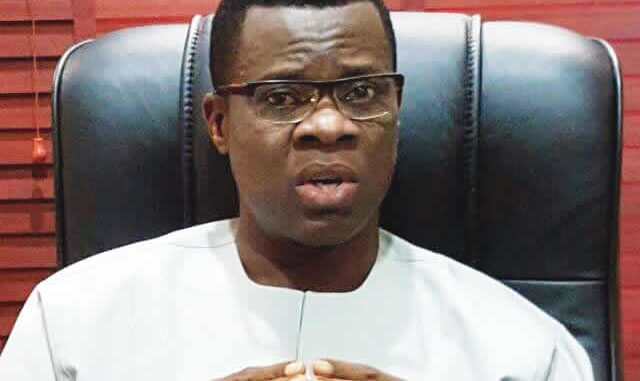
Indications that the forthcoming 2019 general elections in Nigeria may be imperiled are rife. This follows the disclosure by the Resident Electoral Commissioner (REC) for Akwa Ibom State, Mr. Mike Igini that a number of illegal polling units exist in strange places like hotels, churches and mosques in the state.
Mr. Igini’s disclosure is instructive as it is a pointer to the prevalence of unlawful activities that could compromise the country’s electoral system and should be seen beyond merely raising the alarm. Similar discoveries were made in Anambra and Rivers states during the run up to the 2015 general elections, where illegal polling units were found to be located in shrines and other compromised centres.
Coming from an electoral officer as high as a REC, this discovery cannot be dismissed with the wave of the hand. The REC’s disclosure should rather be seen as a wakeup call to look at all issues that could discredit the conduct of the elections and render the outcome unacceptable to the electorate.
Following the discovery in Akwa Ibom, the opposition Peoples Democratic Party (PDP) has accused INEC of planning to set up some 30,000 illegal polling units across the country as a rigging plot in favour of the ruling All Progressives Congress (APC), asking the electoral body to make full disclosure of the recognised polling units in the country.
INEC has promptly denied PDP’s allegation. But it remains a sad commentary that cases of phony polling stations still exist in the country’s electoral system at this stage of the nation’s democracy. Former INEC chairman, Prof. Atahiru Jega had in January 2015, few weeks to the general elections, told the nation that the commission had rectified the anomaly of having polling units in compromised locations and relocated the identified units to more neutral and safer spots.
The issue of polling centres is key to free, fair, credible and acceptable elections in 2019. Therefore, INEC must make sure that wherever may be designated as a polling centre is clear of any doubts or fear of being susceptible to manipulation. Indeed, polling centres must be free and accessible to all.
It should be noted that the presence of some polling units in such controversial locations may not have been deliberately done to favour any political interest. Since INEC does not build any permanent structure as polling unit but merely picks address of any location it may consider appropriate, perhaps the Commission should undertake periodic review with a vie some of the affected units may h to ascertaining which centre in the course of development may have been altered.
The Commission can also work with community leaders for useful information on the emergence of a structure that could compromise the integrity of its polling unit and promptly relocate it to a more acceptable location within the area covered by such unit.
INEC Chairman, Prof. Yacoob Mahmood, had declared in June at an interactive session with the business community in Lagos that the 2019 elections would be conducted at 119,973 polling units across the country. However, these units had existed before the 2015 elections.
Therefore, the commission as had been done in the past could decide to create additional units to the recognised ones to accommodate the excess number of registered voters at any original unit.
This is usually considered as expedient for ease of voting exercise on the Election Day. While the extra units will be desirable, INEC, political parties and the public must partner to make sure that such units are not by any errors of omission or commission put in any locations where the voting exercise could be compromised by political parties or their supporters.
END

Be the first to comment